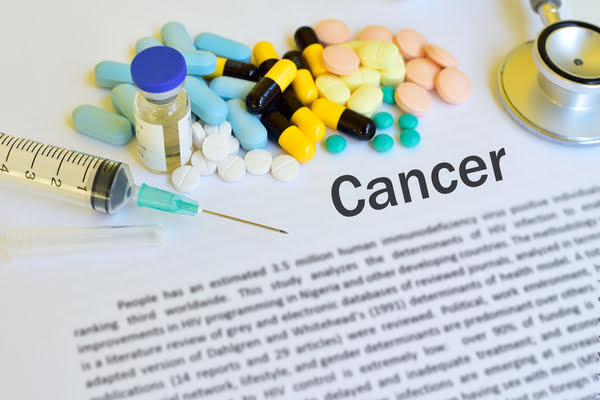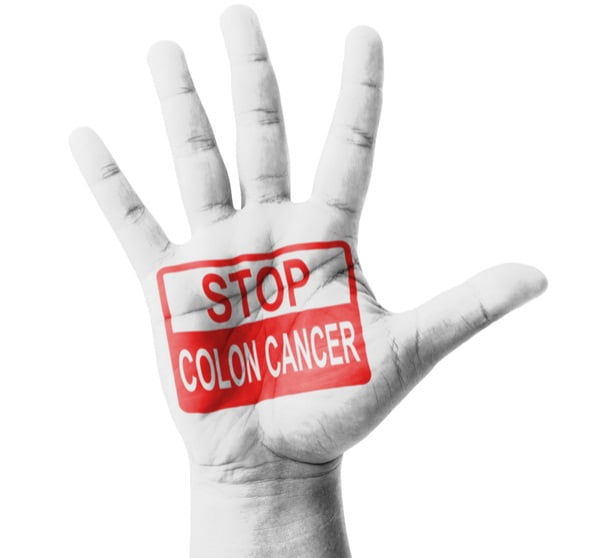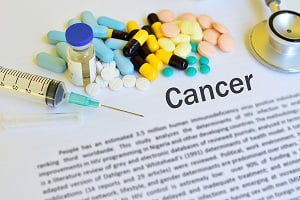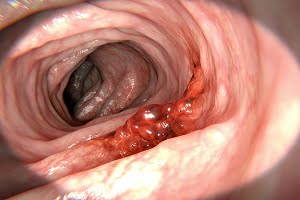Browsing: Cancers
 The page provides quick access to a list of common diseases, syndromes, health conditions, and other topics of health importance related to cancer. The list is organized alphabetically. Links are provided to respective diseases sections that serve as a comprehensive and ultimate guide about the disease or health condition.
The page provides quick access to a list of common diseases, syndromes, health conditions, and other topics of health importance related to cancer. The list is organized alphabetically. Links are provided to respective diseases sections that serve as a comprehensive and ultimate guide about the disease or health condition.
For normal growth and development of our body, cells continue to grow and divide to form new similar type of cells. If any cell starts dividing abnormally, it develops into a tumor which leads to cancer formation. Cancer can occur in any part of the body such as affecting the blood cells, bone, nerve, adrenal gland, ovaries etc.
There are several reasons that can turn a normal body cell to develop abnormally and become cancerous. Significant factors which can lead to various types of cancers are due to exposure of chemical or toxic compounds, ionizing radiation, certain pathogens and human genetics.
Cancer is among the leading causes of death worldwide. In 2012, about 14.1 million new cases and 8.2 million cancer-related deaths have been reported around the world. In women, breast cancer is most prevalent, whereas in men, prostate cancer is quite frequent. Lung cancer and colorectal cancer affect both men and women with high incidence rate.
There are over 200 different types of cancer. The most common type of cancers are breast cancer, lung and bronchus cancer, prostate cancer, colorectal cancer, skin cancer, bladder cancer, non-Hodgkin lymphoma, kidney and renal pelvis cancer, endometrial cancer, leukemia, pancreatic cancer, thyroid cancer and liver cancer.
All skin cancers including melanoma, basal cell carcinoma, and squamous cell carcinoma generally start as changes to your skin. These changes can appear as new growths or precancerous lesions, or other changes that are not cancer but may become cancer later. You can learn here how to identify early warning signs.
Treating Early-Stage Melanomas Early-stage melanomas are generally treated through surgery to remove the melanoma through surgical excision. A very small…
If you have colorectal cancer in, there’s good chance that you are cured or can live longer with this disease than before. This is mainly because there are better and advanced treatments options for it these days. You should discuss with your doctor the possible options and about which of them suits you the most. Treatment of colorectal cancer depends on several factors.
Can Colorectal Cancer Be Prevented? There is no way that you confirm prevention of the colorectal cancer. But, there are…
There is no ‘one size fits all’ treatment for prostate cancer. Your physician will evaluate your condition and make a decision about what is best for you. The decision-making process for treatment may include a combination of clinical and psychological factors such as the following. You should discuss all of them with your doctors before drafting a plan of treatment.
What are the early warning signs of prostate cancer? Usually, there aren’t any. Often, prostate cancer does not cause any signs and symptoms in the beginning. Signs begin to appear only after the cancer has spread large enough to influence functioning of the urethra. At this stage, the cancer is much advanced and can cause troubles particularly of urination.
According to the Urology Care Foundation, prostate cancer is the second most common cause of all cancer-related deaths among American…
Colorectal cancer, also known as bowel cancer, colon cancer or rectal cancer, depending on where they start from, is a cancer of the colon and the rectum. It starts in the colon or the rectum. Approximately 20% of patients with colorectal cancer (CRC) already have metastases at the time of diagnosis. Read about colon cancer survival rate and overview, life expectancy, prognosis, outlook, and metastasis.
Often, people diagnosed with basal or squamous cell skin cancer are cured with treatment. There are a variety of treatment options for skin cancer. These options depend on several factors such as the size of the cancer …
Early Symptoms of Breast Cancer Breast cancer, one of the most common cancers affecting women worldwide, is a disease where…













